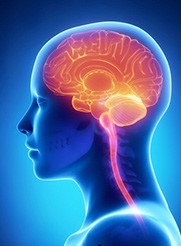The Invisible Symptoms of Schizophrenia!
Posted: Thursday, October 13th, 2022

When you hear the word ‘Schizophrenia’ what comes to mind?
You might think ‘hallucinations’ or ‘delusions’. You might imagine a person looking anxious, unkempt and dishevelled, walking the streets yelling out. Not many of you would imagine a person fully clothed, laying on their bed in the middle of the day, curtains drawn, staring into space, unable to do anything. Would we be right?
This is because this type of presentation is largely unknown amongst the general public. They are known as ‘negative symptoms’. In fact, up to 60% of people with schizophrenia experience negative symptoms.
But what are negative symptoms, you might ask. Negative symptoms are an absence of a person’s motivation, or their drive, or their ability to concentrate, or to generate clear thoughts, or their ability to enjoy activities that they once used to. Often these types of symptoms are known by their psychiatric terms, such as, avolition, alogia, apathy, anhedonia, and attentional deficits. And just like these terms are likely to be incomprehensible to those untrained in psychiatry, it is incomprehensible to imagine the impact they can have on your life if you are not experiencing them yourself.
In fact, they have such a devastating impact on a person’s ability to function that just doing day-to-day activities, like cleaning, cooking and shopping can become difficult. So, can you imagine how hard it would be to study or work if you were experiencing negative symptoms? It seems impossible, and this is why employment and education rates are low amongst people with schizophrenia compared to the general population. For almost two thirds of people, schizophrenia is commonly diagnosed before the age of 25. This is when they are excited to be starting out in new jobs or careers, not to mention socialising with friends, developing relationships, and generally having a good time. Not being able to do these things at that age would be heartbreaking. Not many would choose to be laying on their beds, all alone in a darkened room, if they had a choice!
So, you can see how people who experience negative symptoms may be perceived as being lazy. In fact, it is not uncommon to hear close family members saying “why can’t they just get a job?”. Friendships are often lost and intimate relationships break down, all due to this lack of understanding of negative symptoms. Not being understood by those around you, must be heart wrenching.
And unfortunately, this stigma continues on today. If a person has a broken leg, it would be obvious as to why they couldn’t do certain tasks, however a broken mind cannot be seen – which is why there is this misunderstanding of people with schizophrenia, especially those experiencing negative symptoms. Negative symptoms certainly are the invisible symptoms of schizophrenia!
Just because you can’t see the symptoms doesn’t mean they are not real. Which is why it is so important to increase awareness, understanding and empathy for those experiencing negative symptoms of schizophrenia. For more information https://livingwithschizophreniauk.org/information-sheets/negative-symptoms-understanding/.
Our grateful thanks to Pam Maroney, BAppSc(OT), Doveton Community Care Unit, (Occupational Therapist with over 15 years working in clinical psychiatry) and Chris Lawton (a person with lived experience) both from Australia for writing this piece for us.
References
Correll C and Schooler N, 2020, Negative Symptoms in Schizophrenia: A Review and Clinical Guide for Recognition, Assessment, and Treatment, published in Neuropsychiatric Disease and Treatment 2020:16.
(Image: CLIPAREA l Custom media on Shutterstock)
<< Back to blog







Thankyou. I have been trying to understand the full extent of my mother’s illness, which has become horribly worse. At 95, she does not want treatment and because of her religiosity (previous article was also helpful), believes that delivering herself from evil possession (constantly) is the key.
My son suffers from this form of Sz with his diagnosis in 2013, age 25, of paranoid schizophrenia. And while the positive symptoms would put him in the hospital, I’ve found the negative symptoms to be much more heartbreaking and very hard for a mother, wondering all the time, will be just be this way forever? Negative symptoms are chronic and debilitating. People need to understand this. I plan to share this very well written article with family members.